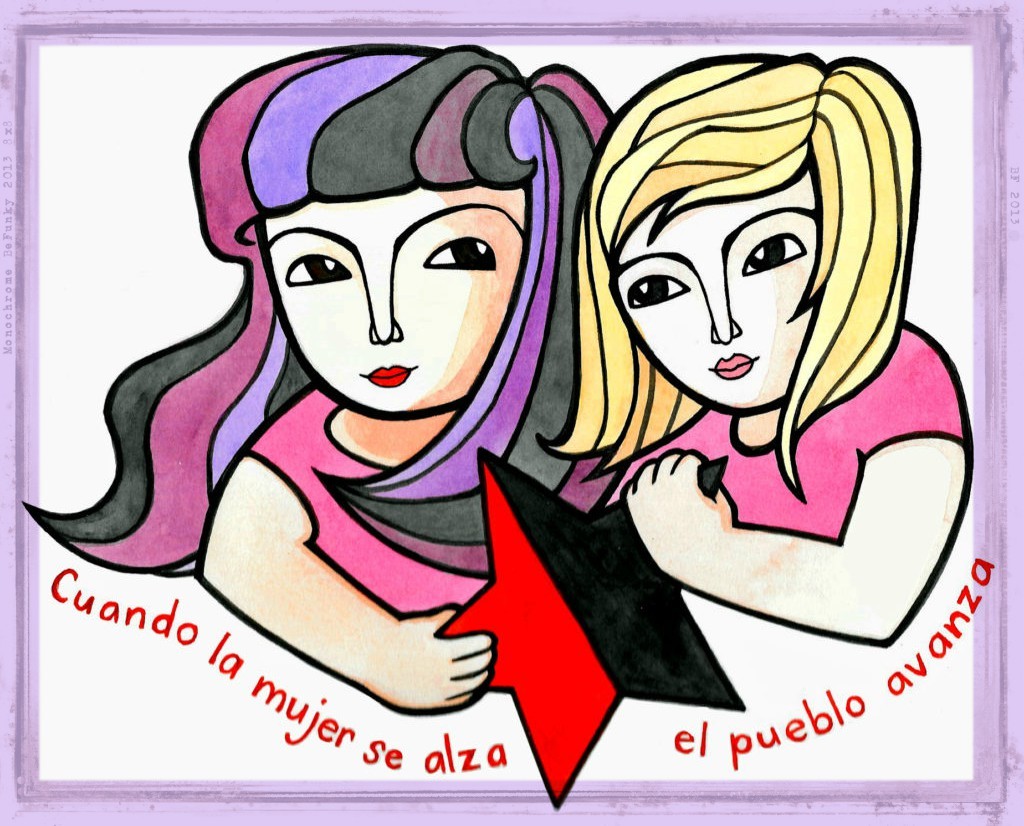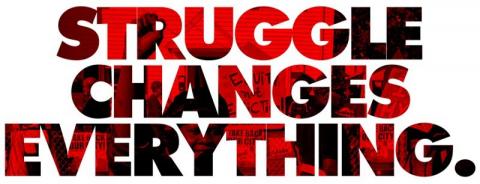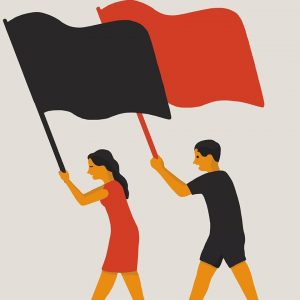Having identified as a Marxist-Leninist for several years before turning to anarchism, my first serious engagement with anarchism as a movement and philosophy was, of course, a mishmash of misrepresentations from Marx and Engels as well as more modern strawmen and bad-faith arguments from modern Marxist-Leninist YouTubers and authors. After realizing that what I had read and heard about anarchism was incorrect by engaging with anarchist theory and history in good faith, it quickly became tiring to see, read, and hear the same tired arguments that don’t make any sense to someone who actually has a working knowledge of the theory and practice of anarchism.
I recently came across an article written by a Marxist-Leninist that doesn’t seem like a poor attempt at recruiting anarchists, but rather a bad-faith attack on anarchism. Like most Marxist critiques, it neither quotes from nor makes mention to any major anarchist author or text. The only genuine quote that was taken from the author’s tuchus is, unsurprisingly, from Lenin’s State and Revolution.
Is anarchism based on spontaneity? Do anarchists think it’s possible to negate the state and capital overnight?
One of the most tiring arguments against anarchists, having its roots in Engel’s essay “On Authority” is the idea that anarchists want to completely abolish the state or class society overnight. More specifically, the idea that anarchists think it is possible to do so. No anarchist author or movement has ever expressed this sentiment. In fact, what makes The Conquest of Bread and Factories, Fields, and Workshops by Peter Kropotkin so valuable for radicals to study is Kropotkin, knowing that revolution would be a drawn own struggle lasting for several years and face countless obstacles, sought to try to come up with tangible suggestions to how a revolution beginning in the city may feed itself and expand. Countless other authors, Bakunin, Rudolf Rocker, Berkman, Dielo Truda, among others, have also expressed this sentiment, but in typical Marxist fashion we never get to hear from any of them in this article. It boggles the mind how someone can sit down and write an entire essay about something they clearly have read no primary sources on, but it is nothing the anarchist movement hasn’t seen before.
How do anarchists intend to produce this instantaneous, spontaneous change? For this the author tells us:
“This proposed method by anarchists of reaching this instantaneous change is, of course, instantaneous agitation. “Direct action”, “insurrection”, “praxis” … these are all terms used to describe an unorganized mess of chaotic incoherence that yields little more than charity efforts with class character, idealized in the mind of an anarchist as a brave, selfless act.”
There is a lot to go over here. Of course, there is no mention of tendencies within class struggle anarchism that are pro-organization. No mention is made of anarcho-syndicalism, or platformism, or especifismo. There is no mention of the anarchist internationals around the globe dedicated to building popular power and organizing as part of working class struggles. The author just repeats buzzwords which they incorrectly see as revealing the incoherence of the anarchist position. This is an attempt to make anarchism look bad by omitting crucial information about anarchist theory and history, so it appears anarchists not only have impossible goals, but do not even have any well-established ideas on how to reach these impossible goals. However, this is not the case. Anarchists of the type I named above want the oppressed and exploited to take society into their own hands by means of struggling to build social movements and popular power which gives the oppressed and exploited the knowledge and experience needed to transform society. This may be spontaneous in the sense that it is self-managed, and class struggle may hit high points causing drastic changes over a short amount of time, but it is most definitely not instantaneous. Nor could it be.
Do anarchist want to just “Do whatever I feel like”?
The author continues:
“For as much as anarchists say, “Educate, agitate, organize!” they never really seem to grasp the importance of the final word in the slogan — without organization, you are nothing. Without organization, you can have no rallies, marches, mobs… People’s liberation from oppressive structures like patriarchy and racism are vital, yes, but compressing everything into doing whatever I want good, hierarchy bad means that certification is oppressive. Needing to consult an expert is worse than queermisia.”
For those unaware, “queermisia” is meant to be an alternative way of saying “queerphobia” or homophobia, or transphobia. The argument is that the suffix “-phobia” conflates forms of bigotry and oppression like homophobia with genuine phobias and is therefore ableist. A silly argument, but one that has nothing to do with the topic at hand.
A common mistake that the author made in this quote is the implication that anarchists oppose organization. This argument, of course, comes from the reality that anarchists are critical of Marxist-Leninist forms of organization, and against democratic centralism. If there is no central committee that directs the struggle from above, then there is no struggle, according to the Marxist-Leninists. It makes no room for working class self-management nor for the reality that the liberation of the working class is the task of the working class alone. The history of the anarchist movement, especially the history of anarcho-syndicalism, platformism, and, more recently, the growing, living practice of especifismo found in Latin America. Anarchists do not oppose organization, what anarchists oppose is a class of professional revolutionaries taking state power and trying to govern over the working class. This historically has never led to a free society but instead a state capitalist society that slowly but surely capitulates to global capital.
The idea that anarchists think expertise is oppressive, too, has no basis in anarchist theory or practice but nevertheless gets circulated in critiques of anarchism. In fact, one of the most famous quotes that gets passed around about anarchism from an anarchist is from Mikhail Bakunin. It is from a section from his God and the State known more famously as “What is Authority?”:
“Does it follow that I drive back every authority? The thought would never occur to me. When it is a question of boots, I refer the matter to the authority of the cobbler; when it is a question of houses, canals, or railroads, I consult that of the architect or engineer. For each special area of knowledge I speak to the appropriate expert. But I allow neither the cobbler nor the architect nor the scientist to impose upon me. I listen to them freely and with all the respect merited by their intelligence, their character, their knowledge, reserving always my incontestable right of criticism and verification. I do not content myself with consulting a single specific authority, but consult several. I compare their opinions and choose that which seems to me most accurate. But I recognize no infallible authority, even in quite exceptional questions; consequently, whatever respect I may have for the honesty and the sincerity of such or such an individual, I have absolute faith in no one. Such a faith would be fatal to my reason, to my liberty, and even to the success of my undertakings; it would immediately transform me into a stupid slave and an instrument of the will and interests of another.”
So, no, anarchists do not think certification is oppressive, nor do we think that consulting a doctor is in anyway the same thing as patriarchy or white supremacy. Historically, anarchists have differentiated between political authority, which is coercive and detrimental to human liberation, and “natural authority” or expertise, which is the result of different people developing their faculties differently and is not necessarily coercive. Anarchists want to abolish the former and replace it with a self-managed society, but anarchists do not necessarily want to abolish the latter. Anarchist-communists, like all communists, want to abolish the division of labor. However, this does not mean that there will not be people who have studied certain more in depth than most people, now does it mean that these experts should not be consulted for issues relating to their expertise. Anarchists have never claimed this.
Do anarchists want to disarm ourselves?
The author goes on to claim that anarchists believe that the anarchist critique against taking state power means that anarchists want to simply disarm ourselves and allow the bourgeoisie to reestablish their power:
“Until every nation has made the transition from capitalism to socialism, and until counter-revolutionary tendencies in every nation have been thoroughly disbanded, it is impossible for the state apparatus, the domination of one class by another, to dissolve. Why? Because if a socialist nation lays down its arms, they will be instantaneously reacted against by the bourgeoisie of the same nation or another nation, where they will then proceed to establish a dictatorship of the bourgeoisie.”
This, too, has a lot to be discussed. The idea that socialism is something that can exist within nation-states is, of course, what Marxist-Leninists claim in order to say that 20th century “AES” states are socialist. However, such a thing is not present even in Marx or Engels. It is an idea of “socialism in one country” theorized after the Russian revolution’s failure to abolish capitalism to claim the development of capitalism by the new Soviet government was not capitalism, but socialism. This argument can be addressed another time.
The idea that anarchists just want to allow the bourgeoisie to reestablish itself comes from the idea that anarchists see revolution as an instantaneous event and not as a historic process that will take years and face countless obstacles. That is to say, it is the result of not seriously engaging with the theoretical underpinnings of anarchism.
Is anarchism idealist?
Another common misrepresentation of anarchism is that anarchism is based on idealism. This is supposed to be contrasted with Marxism-Leninism, which, of course, attempts to portray itself as the materialist alternative. Marxism-Leninists do this in order to try to monopolize materialism, science, and, of course, revolutionary politics. To show that anarchism is based on materialism, we have a wealth of resources to pull from. Kropotkin’s Modern Science and Anarchy is perhaps my favorite. However, one well known work that sketches this out is, of course, Bakunin’s God and the State:
“Who is right, the idealists or the materialists? The question, once stated in this way, hesitation becomes impossible. Undoubtedly the idealists are wrong and the materialists right. Yes, facts are before ideas; yes, the ideal, as Proudhon said, is but a flower, whose root lies in the material conditions of existence. Yes, the whole history of humanity, intellectual and moral, political and social, is but a reflection of its economic history.
All branches of modern science, of true and disinterested science, concur in proclaiming this grand truth, fundamental and decisive: The social world, properly speaking, the human world — in short, humanity — is nothing other than the last and supreme development — at least on our planet and as far as we know — the highest manifestation of animality. But as every development necessarily implies a negation, that of its base or point of departure, humanity is at the same time and essentially the deliberate and gradual negation of the animal element in man; and it is precisely this negation, as rational as it is natural, and rational only because natural — at once historical and logical, as inevitable as the development and realization of all the natural laws in the world — that constitutes and creates the ideal, the world of intellectual and moral convictions, ideas.”
To say that anarchism is idealist is a common smear, but it just that: a smear. It has no basis in anarchist theory and practice, but is the result of a group of people who try to monopolize the revolutionary struggle attempting to explain why anyone would possibly disagree with them.
Conclusion: A wolf in sheep’s clothing? Are anarchists privileged?
A final point the author tries to make is actually one that is more modern. Afterall, classical Marxists could not in good faith claim that anarchists were privileged or disconnected from working class struggle. The opposite is true: both anarchism and Marxism evolved out of the same movements, and the same organizations. Nevertheless, modern Marxists, many of whom are privileged and western themselves, try to paint anarchism as a western movement full of out-of-touch, westerners.
Not only is this incorrect, it’s offensive. Anarchism has a rich history in Asia, Africa, and Latin America. The anarchist movement in Latin American is perhaps the largest in the world, and anarchism as a movement is gaining traction in Asia, particularly in Bangladesh and Indonesia. This is not to tokenize non-western people in their struggle against capital and empire. In fact, the claim that anarchism is solely or even majorly a western movement is an attempt by western Marxist-Leninists to tokenize non-western struggles and weaponize them against people who disagree with them.
Anarchists, particularly anarchist-communists, are not the wolves in sheep’s clothing. We are a movement that seeks to create a free society. We want the oppressed and exploited people of the world to self-direct their own struggle, and to build the infrastructure that will allow them to take their own lives into their own hands. We want to abolish capital and the nation state, and replace these structures with different structures, based on solidarity and the common ownership of the means of production, and by extension, the common ownership of the products of social labor. Is this not communism?
If you would like to read the full article, it can be found here: https://medium.com/@gizes/the-lie-of-communist-anarchism-edd90e4de17f


